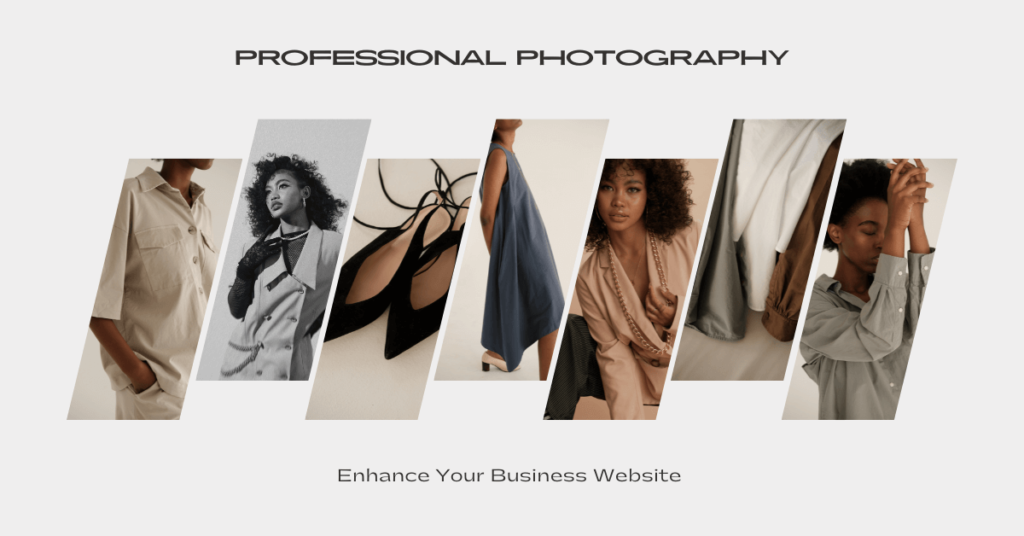That’s nothing new; in today’s digital fashion world, how your product looks decides your sales. And here, ghost mannequin photography helps you show clothing as if someone is wearing it. The best part is that it can be done without a model. It highlights the fit and detail of each piece.
So, ultimately, the technique makes your store look professional. On top of that, it saves your model cost. It’s perfect for eCommerce businesses that want realistic and attractive product images to attract customers effectively.
What Is Ghost Mannequin Photography?
Ghost mannequin photography is a product-photography technique. It is used to show clothing as if a person wears it, but without a model or visible mannequin.
Here, you first dress a mannequin and photograph the garment from different angles. Then you remove the mannequin in post-production and merge images. It gives your clothing a three-dimensional and wearable appearance.
Now you must be wondering the businesses even use the ghost mannequin technique. Let’s take a look at the good enough reason for it.
- It shows the fit and shape of the garment.
- It creates a clean and distraction-free presentation of the product.
- The image looks professional in product pages.
- It helps customers imagine wearing the dress themselves.
- It saves costs over hiring models.
- It reduces product returns as it shows a realistic fit.
- It highlights fine details like collars and cuffs.
- It speeds up editing.
- It enhances visual appeal for online businesses and catalogs.
- At last, it also supports 360° product displays for ecommerce.
What Are The Types Of Shots In Ghost Mannequin Photography?
You can take the garment image shot from a different angle for ghost mannequin photography. Here is a quick overview.
| Shot Type | What It Shows | When & Why You Use It |
| Front view | It shows the front of the garment. Like its design, neckline, buttons, prints, and main cut. You can say it’s the primary image on product pages. | It helps customers instantly understand style. It is good for tops, dresses, jackets |
| Back view | It shows details on the back. For instance, cut, closure, seam lines, and back design. | You can use this when the back has significant design features or buyers are likely curious. |
| Side view | It shows the side silhouette. Like how sleeves fall and how the garment drapes. It is useful to show the shape. | It is useful for garments where the shape from the side matters. For instance, jackets, coats, and flowing tops |
| Three-quarter (¾) view | It will be between the front and the side. The shot shows depth and gives a realistic visual to the garment. | It is very good for highlighting silhouette, drape, and fit while avoiding “flatness.” |
| Inside / Interior details | It includes shots of collars, inside stitching, lining, label, fabric texture on seams, etc. These fill-in parts are used in post-production. | When a product has notable inside work or detailing, you can use this shot. |
| Detail / Close-up shots | It highlights fabric texture, buttons, embroidery, accessories, zipper, and seams. HIt helps the buyer assess material quality. | You can use it when material or craftsmanship is your selling point. |
| 360-degree view / Multi-angle rotation | It gives the garment a full interactive view. It shows the garment from many angles, often rotating. It gives a more complete impression of how it looks from all around. | It is useful for higher-end e-commerce, or when customers expect to “turn around” the product virtually. |
Ghost Mannequin: Comparison With Flat Lay Photography
Flat lay is a style where the garment is arranged on a flat surface and photographed from directly above. It is often used for styling props, coordinating outfits, accessories, or simply showing texture/pattern.
| Feature | Ghost Mannequin | Flat Lay |
| Dimension & Realism | Better 3D effectIt shows shape, drape, curvature—not just surface. It helps customers imagine how the item would look worn. | More 2DIt shows the top-view layout. It is less realistic for fit or structureIt tends to flatten the silhouette. |
| Fit & Product Details | Excellent for showing fit, shoulders, collars, lining, and structure. Good when shape matters, like jackets and dresses | Works better for texture, pattern, prints, small accessories, and props. Not ideal for showing how something hangs or fits on the body |
| Aesthetic & Brand Feel | Clean, professional, minimalistic, and premium feel. | More lifestyle, stylized, creative, and visually engaging. |
| Cost, Time & Technical Requirements | Higher | Lower |
| Versatility | Best for structured garments | Very flexible |
Advanced Techniques Used in Ghost Mannequin Photography
To create truly professional and appealing product images, photographers need more than a basic ghost mannequin setup. Here, advanced techniques help highlight garment details and enhance the three-dimensionality of the product.
1. Utilize modular mannequins
Modular mannequins feature removable parts. Such as arms, legs, and neck sections. The design allows for effective removal of the mannequin in post-production, creating a clean, invisible effect. Professionals recommend selecting a mannequin that closely matches the fit of the garment to ensure realistic results.
2. Strategic lighting techniques
Proper lighting is crucial for highlighting garment details and achieving a realistic 3D effect. You should use softboxes or diffused lighting. It will help to minimize harsh shadows and evenly illuminate the garment. For instance, if your position lights at 45-degree angles from the garment, it can enhance the texture and depth of the product.
3. Advanced post-production editing
Post-production is where the ghost mannequin becomes effective. Here, using software like Adobe Photoshop, photographers combine multiple images to remove the mannequin. They use techniques like layer masking and the pen tool for precise selections.
4. Incorporate 360° product views
To provide customers with a comprehensive view of the garment, you can integrate 360° product photography. It allows shoppers to rotate the product and view it from all angles. Ultimately, it enhances their online shopping experience and increases confidence in the product.
5. Optimize for ecommerce platforms
At last, you need to ensure that ghost mannequin images are optimized for various ecommerce platforms. It includes adhering to platform-specific image dimensions and file sizes. Additionally, you should maintain consistency in image style and quality in product listings. It can strengthen brand identity and improve customer trust.
Tips for Small Businesses and Startups
For small businesses and startups, investing in ghost mannequin photography can be a cost-effective way to present products professionally. By utilizing DIY setups with affordable equipment and using low-cost editing tools, businesses can achieve high-quality images.
1. DIY setup with minimal equipment
You don’t need an expensive studio to create professional-looking ghost mannequin photos. A basic setup can do the magic. It can include a white backdrop (like a bedsheet or poster board), a tripod, and a smartphone or DSLR camera.
Don’t miss the natural lighting. Natural lighting from a window can serve as your primary light source and is supplemented with inexpensive reflectors.
2. Utilize free or affordable editing tools
Post-production is crucial for achieving the ghost mannequin effect. For those on a tight budget, free tools like GIMP or online editors like Photopea can be used to remove the mannequin.
Alternatively, affordable services like Clipping Path CA offer professional editing starting at $0.59 per image. It can save time and ensure high-quality results.
3. Focus on key garment details
Highlighting unique features of your products can set you apart from competitors. Ensure that your photographs showcase details. Such as stitching, labels, fabric texture, and unique design elements. Here, close-up shots can be particularly effective in emphasizing these aspects.
4. Maintain consistency in product listings
Consistency in your product images helps build brand identity and trust with customers. Ensure that all product photos follow a similar style and lighting setup. It makes your online store appear more professional.
5. Leverage professional editing services when necessary
At last, professional editing. DIY methods are indeed cost-effective. But there are instances where professional editing is beneficial. Services like Clipping Path CA specialize in ghost mannequin photo editing and can provide high-quality results that enhance your product images effectively.
Conclusion
All in all, ghost mannequin photography helps your clothing look realistic and professional online. It shows the fit and design without needing a live model. Compared to flat lay photos, it gives a 3D look that helps shoppers imagine wearing the clothes.
Moreover, ghost mannequin is perfect for online stores that want clean and attractive product images. The technique saves cost and makes your brand look more trustworthy. Ultimately, ghost mannequins increase sales and customer confidence.
Also of interest:
- Ghost Mannequin vs Model Photography – Which is Best?
- Ghost Mannequin Editing Process – Step by Step Guide
- Proven Ghost Mannequin for Ecommerce Tips to Boost Sales in 2025
- Ghost Mannequin Editing for Clothing & Apparel Brands
- Ghost Mannequin Editing Price Guide 2025 – Cost Explained
- Ghost Mannequin Service Outsourcing: Pros, Cons & Tips







